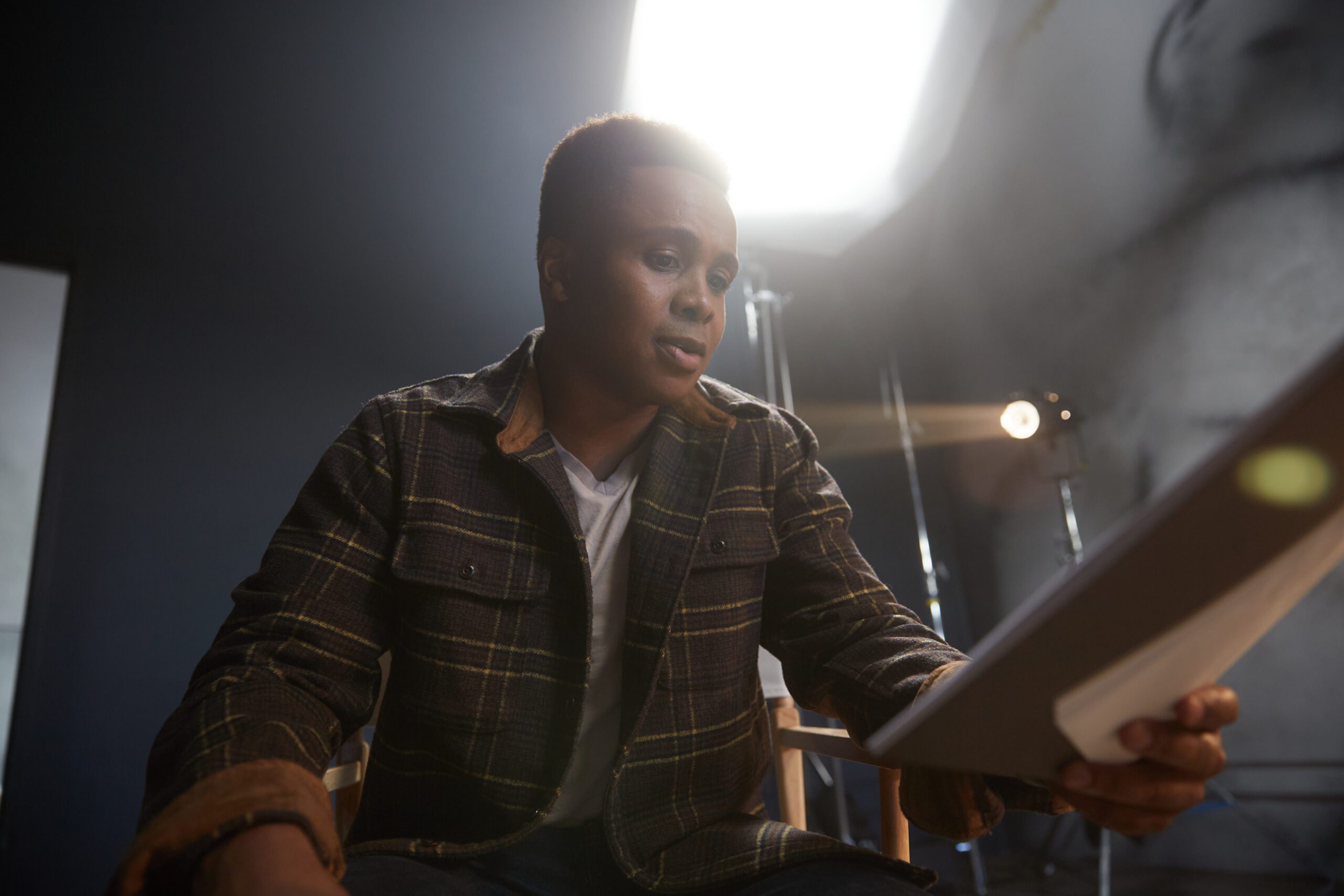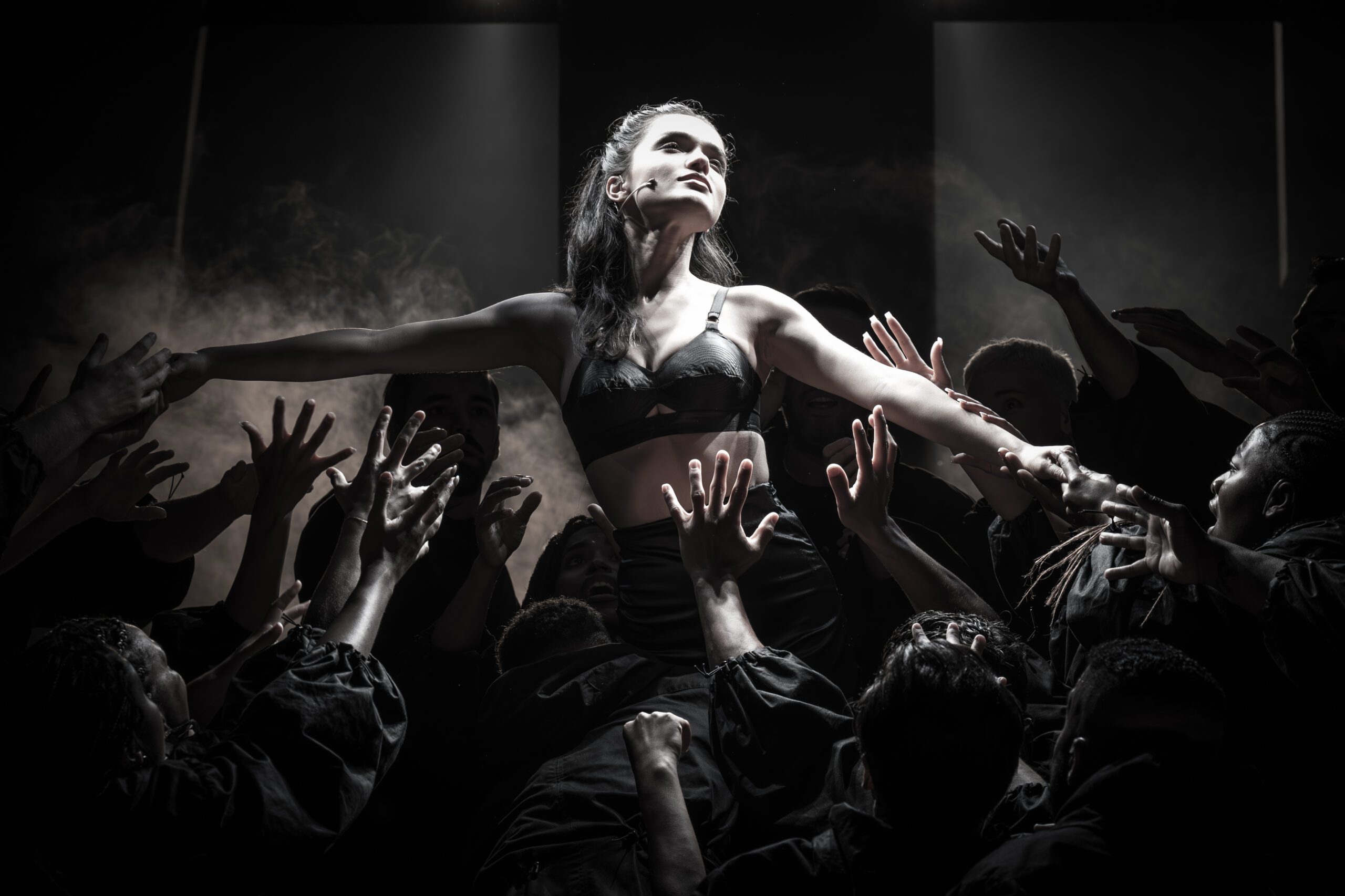Chris Neels talks to Colab Theatre’s Bertie Watkins on what it takes to audition and be cast in immersive theatre
As soon as the audience picks up that you’re not hot on your feet, they’re going to start going after you. Improvisation is very key… You need to have great knowledge retention, but not in a formulaic way.
Colab Theatre is one of London’s many young immersive companies developing work that challenges audiences to be part of the world of the production, and even help drive the narrative. In just three years, the company has performed eight successful productions and is working in its own dedicated space. We sat down with Artistic Director Bertie Watkins to discuss the rise of ‘Action Theatre’ and what advice he had for any performers looking to get into the world of immersive theatre.
What is Colab Theatre?
I started Colab out of boredom and frustration. I find traditional theatre dead boring most of the time. I think you’re lucky to find good, traditional theatre and usually when it’s good it’s extremely expensive. So, I wanted to make affordable but good theatre, that actually involves the audience, rather than just allows you to sit down and watch someone else do what they want to do. I want to talk to the actor in front of me. With the development of film and television, access to Netflix and such, I think what’s special about theatre now is the intimacy. We should capitalise on that, I think and traditional theatre still isn’t doing that; immersive theatre is.
Colab Theatre is an action theatre company, which is an extension of immersive theatre. It is part interactive, part narrative and part game-based theatre. The audience is in the passenger seat or the driving seat of the piece of theatre they are watching. It’s essentially cool immersive theatre or, rather an advance of immersive theatre that involves the audience a lot more!
So, is ‘Action Theatre’ a new thing?
Yeah, ‘Action Theatre’ is a new thing. We are just starting to differentiate between immersive and action. I think they are two forms of theatre that are starting to appear more and more, especially with small companies that are arising out of the ashes of Punchdrunk. People that want immersive theatre want a big room, where you don’t get interacted with much and you’re still very much anonymous. In ‘Action Theatre’, I think, you’re less anonymous and you are more interacted with as a person or a character within the narrative.
What sort of skills do immersive actors need?
The key is improvisation. You have to be bright; you have to be quite intelligent. You have to be thinking about what you’re going to say whilst you’re saying what you’re saying and thinking ahead all at the same time. You need to be able to reply, like if an audience asks: ‘What have you had for breakfast?’ You need to be able to answer. It’s hot seating essentially, but it’s constant hot seating – you can’t run away from it. As soon as the audience picks up that you’re not hot on your feet they’re going to start going after you. Improvisation is very key, it’s just basic. You have to know everything. You have to know what you had for breakfast.
You need to have great knowledge retention, but not in a formulaic way. As an immersive actor you’re not just thinking about your scene then. You’re thinking about how your character is affecting your audience at that point in time. You might be in a show where your scene is the first scene that the audience sees.
You need to think about the tone and the information that you’re giving for that audience at the beginning. Yet, in the same show, that scene might be at the end for other audiences, so you need to be considering the tone of how you would be giving that same scene at the end of the show rather than at the beginning. That can be one example. Often it’s about audiences changing things, so you need to be able to adapt and be able to know when to take out bits that aren’t necessary or put in other bits that are.
You may also be on a strict time schedule. So, your scene might be the stop gap in the whole show and it has to be ten minutes sometimes, because the show is running quick, or it might have to be five minutes long because its over running. You have to be able to craft your information so you can make the same scene run fifteen minutes or five minutes depending on what the show needs. You need to be able to retain and deliver information fluidly, so you can highlight the important information in the scene, whilst being aware of everything that is going on in the smooth running of the show.
You have to be able to manipulate an audience. It’s mentalism to a very acute detail, you’re not getting them to guess a number, but you are getting them to ask the right question. You need to be able to guide a conversation back to where you want it to be as a character and as an envoy for the narrative.
The script is taken away from you, which to some actors is liberating and others frightening. We are then throwing an audience in front of you before you’re ready for them, and that is why you have to be particularly good at thinking on your feet, as you have less time formulating your character and more time building the show as a whole and thinking about your character within that show.
How do you audition for immersive actors?
It’s always been a bit tricky. For our most recent production ‘Loot’, we actually had a really good audition process, after three years of trying things. Usually we start off with bonding games. We try and do information retention straight away, like name games, that sort of thing. Even during the warm ups, we are watching the actors. The warms up are meant to relax you, which they do and that’s important, but also they often show who can work better in a room full of new people, than say watching a monologue.
We then do some work on tone. Basically, I stole a game from Les Enfants Terrible, who are a very good immersive theatre company. The game is called ‘Top of the Show’. The idea being it’s the beginning of the show and the actor is interacting with some audience members and you have to pitch the tone and the attitude of the show. That’s all that you’re given as direction. We then let them go away for about five minutes and we let them create the start of the show with whatever information they have. Then we will come over and watch them do it.
It all happens pretty quickly, but it’s sort of seeing how well the actor interacts with people who might be standing far away or right near them. How do you approach the audience? Is that tone right for this show? It’s a handy exercise to do because we get to see the actor think less about themselves as a character and more about the audience’s journey. The key is not to think about it to much as it’s more about how they are reacting to those interactions.
We then might do some monologues, but often for us it’s not about whether or not you can do a perfect soliloquy or anything like that because the next exercise is ‘Annoying Audience’. This is an exercise I created, where we use the monologue the actor came with and get them to condense it into three to five pieces of information of their choosing. We then have the actor do the monologue again just with these condensed pieces of information, with an audience… You see there are three types of people who can disrupt your acting in a show like this that we’ve discovered.
One is completely inattentive; they have the agency to walk wherever they want so they don’t have to listen to you. The second one is [the] audience who are playing the game too hard. You see they might think they’re playing, but they’re actually breaking the game, they’re not doing what you want them to do, they’re doing their own thing and no matter what you say, it won’t stop them. The third are the talkers. The ‘over-interacters’. Most people are quite contented being part of the group most of the time; these guys want to sort of highjack the show and make it their show event though there may be another ten people in the group. So, usually we will choose one or two of them and we get the actor to do the three bullet points and we test how they react to that type of person.
How do you rehearse an immersive show?
Well, the reason why the audition process is particularly testing is that the rehearsal process is often shorter than you would have on other productions. We’ve done eight productions now and no one has ever said ‘the show’s definitely ready’ going into opening night. The thing is when you are doing work like this, it’s impossible to be airtight on everything, so anything can happen. There will always be gaps that I haven’t thought of or the writer hasn’t thought of. Due to the audiences being so paramount to the narrative, you can’t expect the audiences to react in the same way every time.
The script is taken away from you, which to some actors is liberating and others frightening. We are then throwing an audience in front of you before you’re ready for them, and that is why you have to be particularly good at thinking on your feet, as you have less time formulating your character and more time building the show as a whole and thinking about your character within that show.
How should an actor prepare for an immersive show?
You need to have more of an idea of the entirety of the show, rather than you specifically as a character, so it’s actually important to learn everyone’s characters and how their character fits into the world you’re creating. Also learning everyone’s track, so you’re aware as to how the show runs and what the audience see.
Try and think about your scene over and over again and think about what people could possibly do to you and how you will react. That is genuinely all you can do. It’s not a like a script, you can’t really go over your lines because there are no lines. There are bullet points but no lines.
Talk to your other cast mates. Find out what crazy things [happened], what crazy audiences did that other night. You’re never going to be fully prepared for everything, but that’s the exciting part of it all.
Chris Neels is a writer and director based in London. Originally from New Zealand, Chris is a founding member and Co-Artistic Director of Fledgling Theatre Company.



















